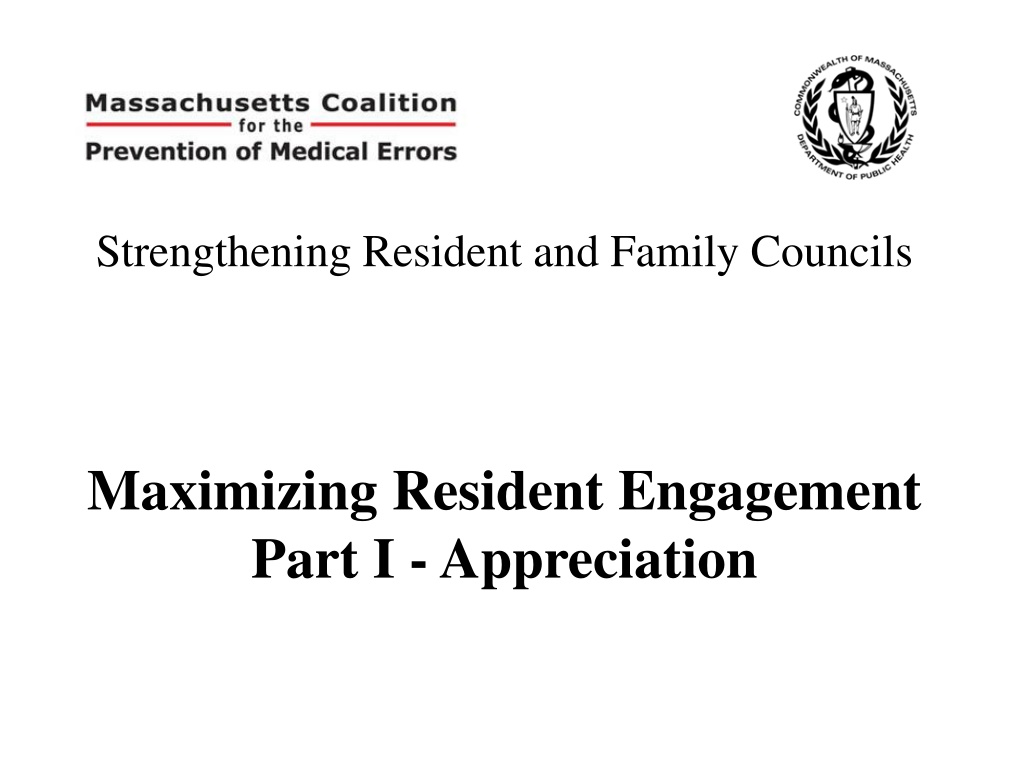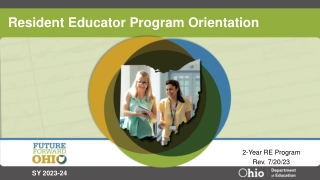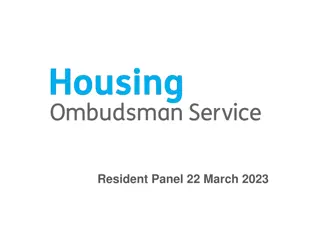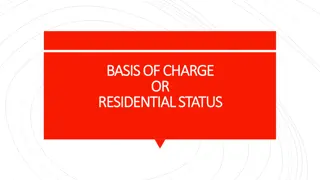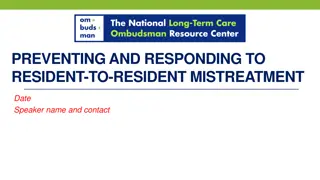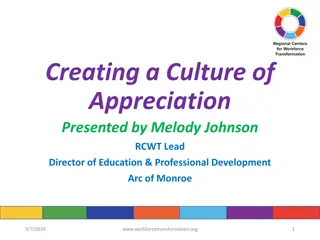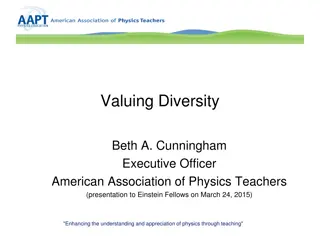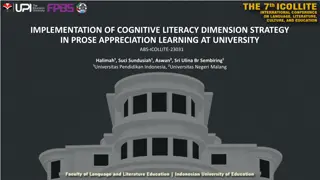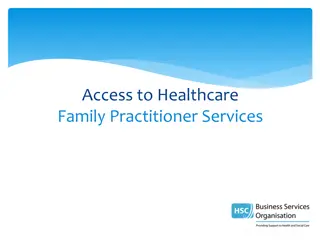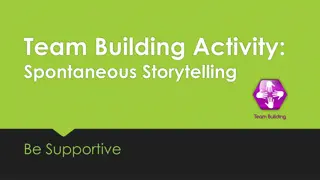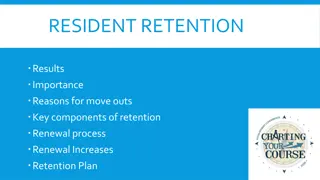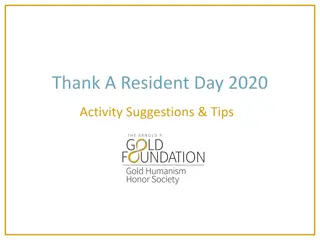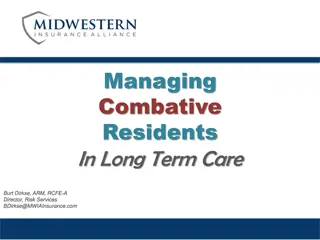Maximizing Resident Engagement through Appreciation
Learn how to enhance resident and family councils by maximizing engagement through appreciation, active listening, and fostering positive changes. Explore the importance of creating a supportive environment for residents in nursing homes, and discover effective strategies to improve quality of life.
Download Presentation

Please find below an Image/Link to download the presentation.
The content on the website is provided AS IS for your information and personal use only. It may not be sold, licensed, or shared on other websites without obtaining consent from the author. Download presentation by click this link. If you encounter any issues during the download, it is possible that the publisher has removed the file from their server.
E N D
Presentation Transcript
Strengthening Resident and Family Councils Maximizing Resident Engagement Part I -Appreciation
Introduction Goals Engage residents and families Partner with nursing homes on improvement Improve quality of life for residents
Maximizing Engagement through Appreciation Kate Waldo, CTRS, ACC National Director of Recreation and Guest Services
Objectives Introduce the three elements of an engagement process. Review the importance of appreciation and active listening as skills for increasing engagement.
Elements of Engagement Process Hearing Concerns and Preferences Engaging Others in Improvement Listening Deeply to Understand
Engaging Others in Improvement Idea Mutual Agreement on Next Steps Generation Testing Changes Obtain the Positive Image of the Future
What is Appreciation? Why is it important?
We can only move in the direction of what we can imagine. ~Bliss Brown When we focus on the problem: We get defensive. We blame others. Our learning becomes difficult. When we focus on what works: We want to talk. We get engaged. Our enthusiasm builds.
Think of a time when Residents or a Resident worked with staff or a staff member to create a positive change. What happened or didn t happened? Who was involved? What made it successful? What did you value most about the situation? What about this experience is worth trying again? Is there anything you would change if you could do it over to make it an even better experience?
Hearing Concerns and Preferences Appreciate 1. The unique qualities of the person 2. The motivating request 3. The past success as a springboard for future success and the creation of a positive image of the future. The food here is terrible. It is bland and mushy. 1. I appreciate your passion about food quality. It sounds like the area we need to address is the preparation of the food. Would you share with me a time when the food was prepared the way you like it? 2. 3.
Active Listening What is active listening? Listening with our full attention What skills does active listening involve? 1. Body Language 2. Tone of Voice 3. Paraphrase 4. Inquiry
Skills of Active Listening Defined What is body language? The way people communicate through facial expressions, postures, and gestures. What is tone of voice? The way people speak to each other including pitch, volume and intonations. What is paraphrase? Repeating back in one s own words what the speaker has said to ensure understanding of the facts, feelings or both. What is inquiry? Using open or closed questions to clarify or gather additional information.
Listening Deeply to Understand How might using the skills of Active Listening increase engagement?
Part I- Maximizing Engagement through Appreciation Part II-Maximizing Engagement through Accommodations and Adaptation Kate Waldo, CTRS, ACC National Director of Recreation and Guest Services
Commitments for Next Steps What can you personally change or try? Patience Practice Persistence Perseverance
